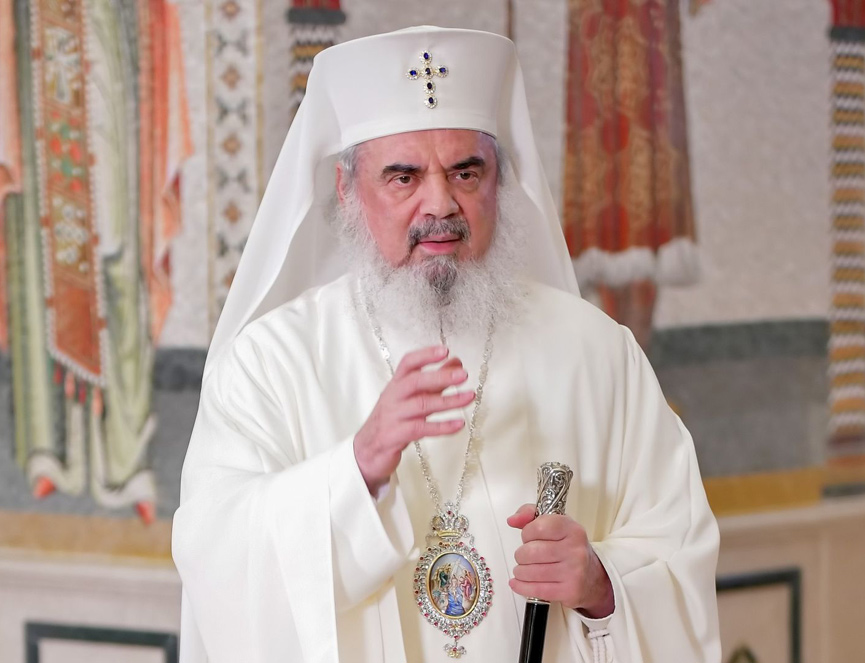 by St. John Chrysostom –
by St. John Chrysostom –
But since our discourse has now turned to the subject of blasphemy, I desire to ask one favor of you all, in return for this my address, and speaking with you; which is, that you will correct on my behalf the blasphemers of this city. And should you hear any one in the public thoroughfare, or in the midst of the forum, blaspheming God; go up to him and rebuke him; and should it be necessary to inflict blows, spare not to do so.
Smite him on the face; strike his mouth; sanctify your hand with the blow, and if any should accuse you, and drag you to the place of justice, follow them there; and when the judge on the bench calls you to account, say boldly that the man blasphemed the King of angels!
For if it be necessary to punish those who blaspheme an earthly king, much more so those who insult God. [Read more…]

 by Aurelian Iftimiu (on Patriarch Daniel of Romania) –
by Aurelian Iftimiu (on Patriarch Daniel of Romania) – by Jennifer Davis –
by Jennifer Davis – by Fr. Ioannes Apiarius –
by Fr. Ioannes Apiarius – by Janet Boynes –
by Janet Boynes – by Fr. Thomas Hopko –
by Fr. Thomas Hopko – by Kirk Durston –
by Kirk Durston – by E. Jeffrey Ludwig –
by E. Jeffrey Ludwig – by Met. Philaret of New York –
by Met. Philaret of New York – by Jennifer Davis –
by Jennifer Davis –